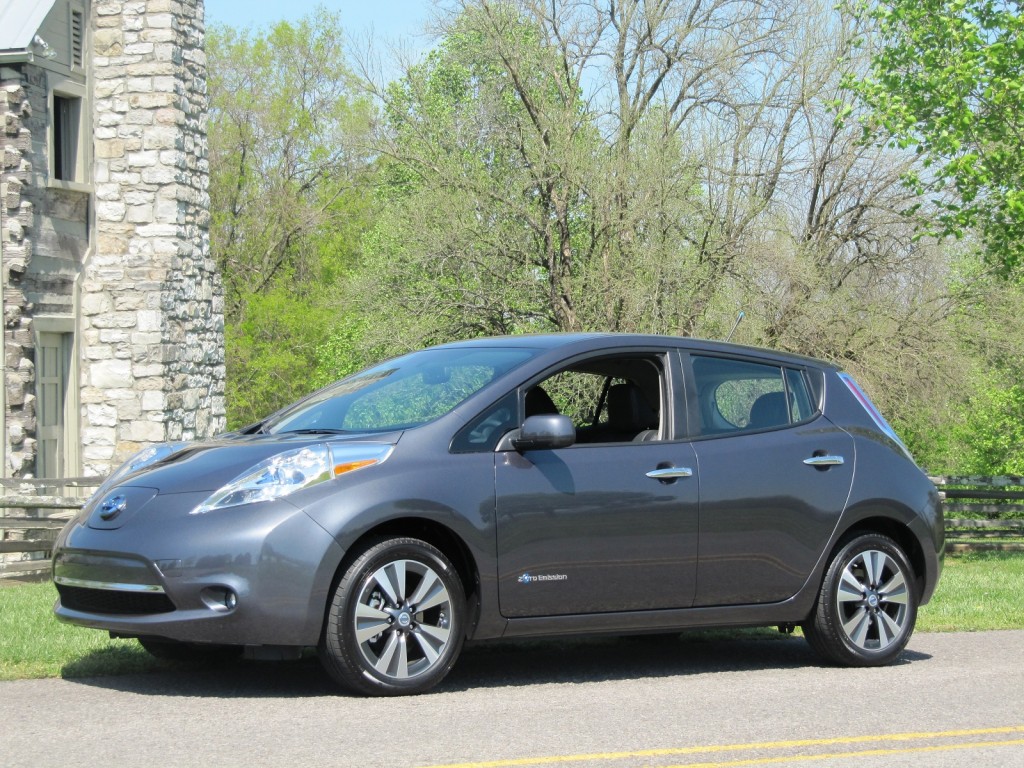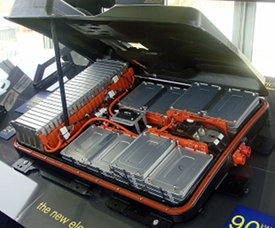
2013 Nissan Leaf, Nashville area test drive, April 2013
To allay fears about loss of capacity in its Leaf electric-car battery packs, Nissan announced today that it would offer what amounts to a battery leasing program after the pack goes out of warranty.
The cost of ensuring minimum capacity will be $100 a month.
The company now warranties the Leaf pack to maintain at least 70 percent of its capacity (or 9 of the 12 bars on the display) over the car's first five years or 60,000 miles.
But for owners who want assurance that they will continue to have at least that level of capacity, Nissan is introducing the new program.
The program will launch during "the first half of 2014," and Nissan said would provide more details before then. The program was first revealed on the MyNissanLeaf forum.
Most won't need it
"Nissan anticipates that the great majority of our current LEAF drivers," said Erik Gottfried, Nissan’s director of electric vehicle sales and marketing, "will never need this battery replacement option."
Some owners might also want the assurance that their car will have the very latest battery technology that's compatible, Nissan said--including any performance upgrades.
Leaf owners who sign up to pay the $100 monthly fee--presumably after the warranty expires--will have their car fitted with a new, 12-bar battery pack if the car's existing pack falls below 9 bars.
New or reconditioned
That replacement pack may be brand-new, or perhaps reconditioned, but it will provide 12 bars of capacity either way, said Brian Brockman, Nissan's senior manager of corporate communications.
Nissan will take back the car's used pack, to ensure proper recycling or reuse, but will own the car's newer pack thereafter.
What happens if the Leaf owner stops paying the monthly fee? Apparently the same thing as if the owner stops paying the car loan.
Life over 15 years?
More than 65,000 Leafs will have been sold globally by the end of this month, a number that includes almost 30,000 in the U.S.
But battery-capacity losses in a small number of Leafs operated in Arizona's high temperatures raised the question of what would happen to a hard-used battery pack that lasted the average lifetime of a car, or about 15 years.
Under such circumstances, a 5- or 10-year-old Leaf could potentially need a replacement pack.
The new program is designed to meet that need at an affordable cost.
It was designed based on discussions with current and potential Leaf owners, and it also drew from Nissan's experience in Europe, where Leaf owners can choose to lease their battery pack from the start for a separate payment.

Lithium-ion battery pack of 2011 Nissan Leaf, showing cells assembled into modules
Price to fall
The price of electric-car battery packs today is sure to fall, just as prices for earlier nickel-metal-hydride battery packs for Toyota Prius hybrids have done.
When the first 2001 Toyota Prius hybrid was launched in the U.S. in late 2000, the cost of a replacement pack was just under $10,000.
More than a decade later, with volume efficiencies, that price has fallen by a factor of four, to $2,299 after a "core credit" of $1,350 for turning in the old battery pack to be recycled.
Retail cost of pack: not available
The price of a replacement lithium-ion battery for the world's most popular electric car would be a useful number, you might think.
It would help owners assess both the value of this battery-replacement program and the Leaf's overall lifetime total cost of ownership.
But, Nissan said, "Retail purchase of a standalone pack is not currently an option" for Leaf owners.
That would appear to contradict statements last October by Nissan's executive vice president, Andy Palmer, that the company would give a price for replacing the battery pack by "this spring."
Today marks the last day of Spring 2013.
_______________________________________________













